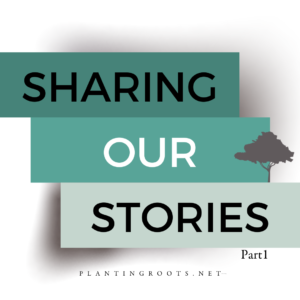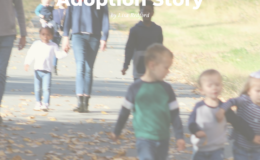
Here at Planting Roots, our vision is that military women will be deeply rooted in Christ. In order to encourage and equip our community, we have fun with inter-service rivalries, we examine principles and practices for navigating everyday military culture, and we thoughtfully address challenging and painful components of our shared military life.
Our nation is currently examining the issue of racism and its related concerns, so we invited members of our all-volunteer staff to share with us their stories as Christian military women who are black and/or have black children. Our prayer is that these stories will illustrate the truths of the Bible and equip the next woman who faces these and other painful challenges.
As Christian women in the military community, we want to first invite our team to share their stories. For now, please prepare your heart and mind to listen to what you will read.
Initial Observations about Racism in the Military Community
Claudia Duff
As I try to get my head and heart around my own emotions, I am dealing with my own humanity. Have I done enough to speak out against racism? Have I shared my story with my white friends? How do I stand for righteousness while being so angry? And how do I communicate what I am feeling with others according to biblical principles? And the big one, how do I forgive and love those who hate me?
Rachelle Whitfield
I have been told for as long as I can remember that, according to the federal government, I am black if I have a drop of black in me. I was raised as a black woman in a predominately black community by my white mother but was told recently that being raised by a white mother made me more white than black. My white mother was raised in a black neighborhood, loved a black man before it was cool or accepted, and was shunned by her family because she loved a black man and had a child with him. I can only recall seeing my white grandfather twice in my life. I can not remember ever hearing him say my name.
I have been discriminated against from both sides. In third grade, my mother allowed me to participate in a school desegregation program, having been promised a better education. My talkativeness, my early leadership skills, and my lack of understanding as to why I was attending that school in turn disrupted the entire class. I spent more time being punished than being in class. One day, I missed the bus back to my neighborhood and the school had me walk home, without notifying my parents. After a frantic search, they pulled me out of that school and I never saw my friends again.
I was sure that, by age fifty, I would no longer be discussing my race. A few years ago, I posted a meme on FB about being a strong, proud black woman and shared pictures of my white mom and black dad–who recently celebrated their 50th wedding anniversary. People I have known many years had no idea I was black and their responses made the post the most commented on in my FB history.
Within the last year, I shared a travel picture of me and my husband and used #BlackLove and #BlackTravel. I received three hate messages telling me that #BlackLove is only for black couples and is to emphasize the restoration of the black family unit.
My greatest concern is for my son, a black gentle giant, raised in a predominantly white community that accepted him. He is behind the curve of being a black man and facing challenges as a black man, oblivious to the obvious racism right in front of him because he can’t imagine someone not loving his humor and his deep love for others. One night, while enrolled in a private, all-white Christian college, a white policeman saw my son as a dangerous black man probably up to no good in rural Georgia.
I would love to be part of the race conversation although I’m not sure where my mixed voice fits. At times, I’m told that I’m not dark enough to really be black. Most days, I am comfortable with who I am and am surrounded by an amazing tribe who love me–whatever color I am.
Lisa Redford
Since we became a multi-racial family five years ago, I have searched for resources and people to help me because, well, I don’t know what I have not experienced. As a white military wife and mom, I am learning alongside you and have been taken aback by others’ reactions to our family since we became colorful! We regularly deal with prejudice, whether it be racially-based or adoption-based.
I have prayed and thought about how Planting Roots could hit this subject because many women just don’t know how to build relationships and to stand alongside their friends of color. I so want to share more about adoption/growing family in non-traditional ways. My situation is quite different than those on staff that have personally experienced racial lines, but my heart is completely invested!
Denise Jolly
So I’m struggling because race hasn’t really been an issue for our family in the military community. Honestly I’m so soul-tired right now with all of this. As a leader at my church, I’ve had several sit down conversations, I have lost a few “friends” this week, and just in general, having the gift of empathy has drained me.
The Way Ahead
Planting Roots would like to thank each staff member for sharing about, praying for, and engaging in messy, difficult conversations about race and more. In the coming weeks you will have the opportunity to see these women’s answers to the following tough questions about racism in the military community.
Question #1: The U.S. military is viewed as being rather integrated racially today. What has been your experience pertaining to racial integration in the U.S. military?
Question #2: Many of us have applied the idea of “not seeing color” while living this military life. What recommendations do you have in response?
Question #3: How do we encourage diversity within our community of Christian military women?
Question #4: Share a story that breaks your heart.
Question #5: Share a story that gives you hope and/or points to Jesus.





